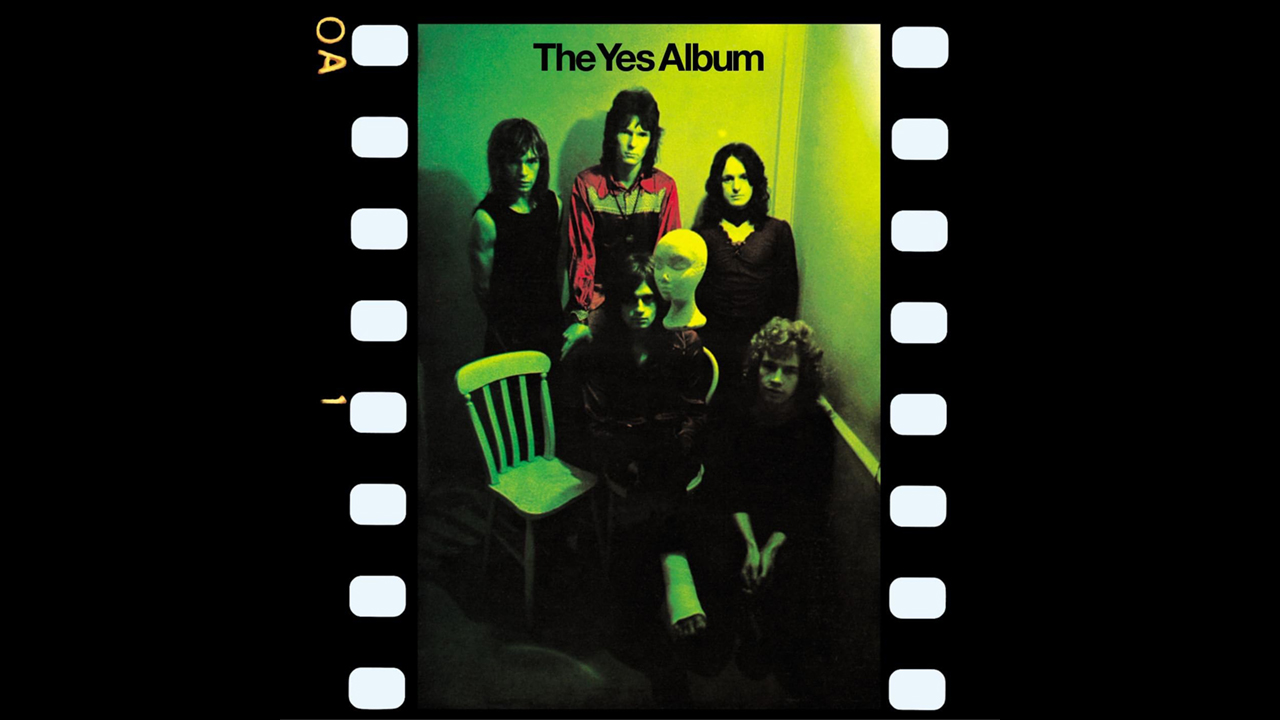It’s difficult to imagine the world of prog without Yes, and all the interpersonal issues that punctuate the timeless music they’ve delivered down the decades. But if it hadn’t been for three quirks of fate in 1970 and 71, before they delivered The Yes Album, the world would have continued to turn without knowing what it was missing.
The band had recently parted with guitarist Peter Banks and hired Steve Howe in his place. They’d immediately felt an upturn in their musical proficiency – Howe merged with Jon Anderson, Rick Wakeman, Chris Squire and Bill Bruford in electric fashion.
But as they worked on new music in the solitude of Langley Farm in Devon – a property Howe would later buy – their manager, Roy Flynn, arrived with some bad news: he’d run out of money and could no longer support them, and thus they no longer had management.
“There’d been nothing but big promises about how great we were going to be, but we were going round and round in ever-smaller circles,” drummer Bruford told Prog in 2021. “We were signed at the same time as Led Zeppelin and they were doing pretty well; and King Crimson had this astonishing first album – we were just knocked backwards by that and jealous as heck.
“There we were in our little damp farmhouse with fifty quid. That was two and half years or something into the band’s life. and we’d singly failed to produce.”
Howe’s input was helping, though; and keyboardist Kaye recalls the time fondly: “Steve and I used to go out and I used to drive around Devon. He and his guitar would create a lot of what eventually turned up on The Yes Album. Steve and I were pretty close at that time and a lot of good collaboration came out of it down there.”
Driving around presented the next problem: as a working band Yes spent endless hours on the road to and from shows, with tired drivers Anderson and Squire regularly falling asleep at the wheel. One night, near Basingstoke, the predictable incident took place. “It was tough driving in all kinds of conditions up and down the M1 and everywhere,” Kaye said.
It was all but over. People have forgotten just how critical a time it was
Bill Bruford
“We hit a truck head-on in the pouring rain. I was in the passenger seat; the rest of the band were in the back. It was a full-on impact and the engine of our vehicle was pushed back into the cabin and broke my foot. It was scary.” Kaye had to perform for weeks with his foot in plaster while everyone was treated for shock – as seen on the cover of The Yes Album, which was taken just after their release from hospital.
The near-miss only compounded matters for the stressed band members. “It was all but over,” Bruford recalled. “People have forgotten just how critical a time it was then. We weren’t costing a lot – the rent of a house and a bit of food to keep body and soul together – but we were in deep trouble.”
Anderson rose to the moment, the drummer continued. “It was Jon who was always on the phone, always hustling gigs; it was Jon who managed to find Hemdale.” That movie company included Brian Lane among their staff, and he’d become the band’s new manager. “Brian was like a branch of the social services,” Bruford laughed.
I’d known nothing but serious letdowns that I don’t even care to talk about… So when I joined Yes it was all very exciting
Steve Howe
Fate twisted for a third time, in a way that gave Lane another chance to shine via his experience as a record plugger. “Between January and March 1971 there was a national postal strike,” Bruford said, “which meant that the Melody Maker chart had to be suspended because they weren’t getting the returns back from the shops to be able to compile a chart.
“Who should step into the breach but a young Richard Branson? He had a chart, and so the newspapers of the day started printing his Virgin chart. The guy who owns the charts puts in what he wants. Brian said he’d get us in the charts. People talk, a couple of hundred quid changes hands – and before you know it, you’re in the charts. It’s that that got Yes going.”
The Yes Album reached No.7 on its release in February 1971, and went on to make No.4 on the official UK chart. It was their first release to see such visible success, and – along with the versatility and virtuosity demonstrated in the new music – secured the band’s future.
“Up until Yes, I’d known nothing but serious letdowns that I don’t even care to talk about,” Howe reflected. “Being left flat here, being turned down there, being accused of this here, being fired there – you know, losing out. So when I joined Yes it was all musically very exciting. Although I’d enjoyed cover versions, I couldn’t see a career being built out of them.”



